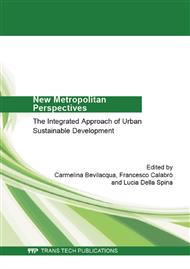p.241
p.247
p.253
p.259
p.267
p.271
p.276
p.282
p.291
Social Peace and Political Pluralism
Abstract:
In the modern age cultural and political pluralism received the serious consideration of the Enlightenment philosophers. In the contemporary age, it is the centre of attention of several thinkers that tackle the often dramatic problems related with the misrecognition of rights and freedoms in cultural minority groups. Liberalism in its multiple formulations puts the universal principles that ignore differences at the base of its reflections. Philosophers such as Charles Taylor and Michael Walzer often insisted on the political necessity to face the problem of differences, denouncing the historical and cultural limits of the different forms of liberal universalism. By examining the contraposition between universalism and communitarism, in this paper I intend to give a theoretical solution to such a contrast. In order to outline a perspective able to overcome conflicts in a pacified society, I consider the resources of the recognition of the rights to capabilities, public debate and practical wisdom.
Info:
Periodical:
Pages:
267-270
DOI:
Citation:
Online since:
June 2014
Authors:
Permissions:
Share:
Citation:


